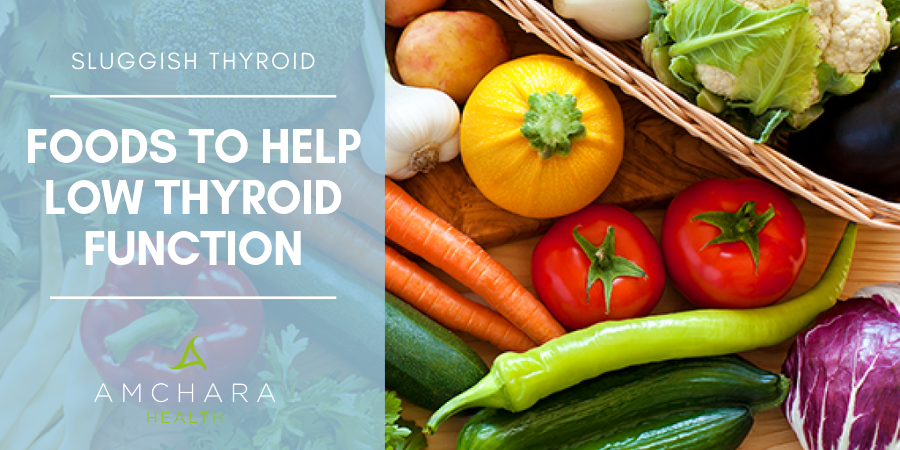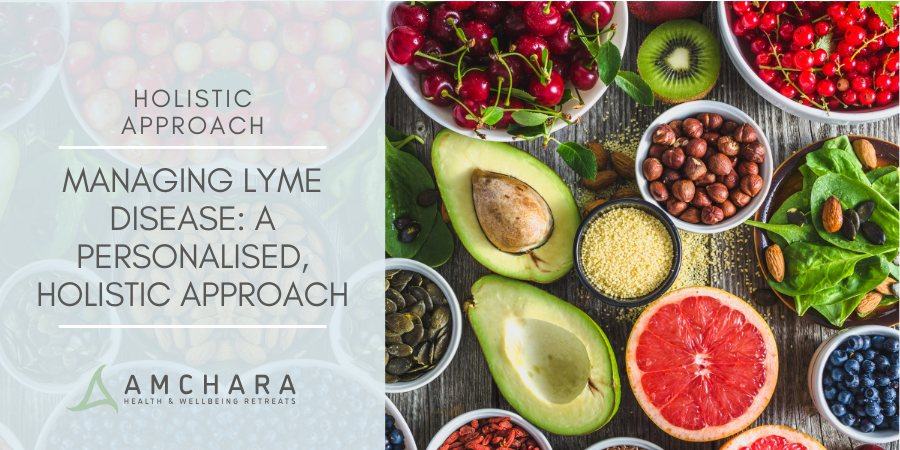Topics Covered in this article:
Hyperthyroidism is a serious medical condition and as such should be treated appropriately by your doctor, but as with any health condition the food you eat plays an important role in your thyroid status.
Healthy nutritional choices can make a real difference to the everyday quality of your life and may potentially ease some of the symptoms of a hyperthyroid condition.
In this article we want to share with you specific foods, supplements and herbs that you can use to support a healthy eating plan.
What is hyperthyroidism?
Hyperthyroidism is a condition in which the thyroid gland is overactive and produces too much thyroid hormone.
It is more common in women than men, with women being two to ten times more likely to develop the condition.
Although hyperthyroidism has many causes it is most often due to autoimmune dysfunction. (2)
The most common cause is Graves’ disease (1), which happens when antibodies in the blood attack the thyroid and cause it to grow and secrete excessive amounts of thyroid hormone.
Another type of hyperthyroidism, known as toxic nodular goitre, is due to one or more nodules or lumps in the thyroid increasing in size over time.
Enlarged nodules are common but they can over produce thyroid hormones, which leads to above normal levels of thyroid hormone in the blood. (2)
Some people may also experience temporary symptoms of hyperthyroidism because of a condition known as thyroiditis.
Thyroiditis is an inflammation of the thyroid gland, which causes leakage of stored thyroid hormones.
This condition is thought to be due to problems with immune function.
It is also possible to have these symptoms after taking too many thyroid hormone tablets.
There are a range of orthodox treatment options for hyperthyroidism including radioiodine therapy, surgery and medications.
However, there is no single treatment that works for everyone. (10)
Common symptoms of hyperthyroidism
Excess levels of thyroid hormones in the body raise the metabolism, affecting many different organ systems.
Consequently, every function tends to speed up producing a range of symptoms such as:
- Weight loss, despite a good appetite
- Enlarged and bulging eyes
- Swollen neck due to enlarged thyroid gland
- Infrequent menstrual periods and lighter flow
- Palpitations
- Anxiety
- Irritability
- Thinning of the skin
- Fine brittle hair
- Weakness in the muscles
- More frequent bowel movements
- Tremors
- Disturbed sleep
- Fatigue
- Increased sweating
- Heat intolerance
Nutrition, herbs and supplements
If you suspect that you have hyperthyroidism, before making changes to your diet or embarking on any complementary or alternative therapies to manage your symptoms, it is vital that you contact your doctor.
You should also keep your doctor informed of any complementary or alternative treatments you are taking as some therapies can interfere with prescribed drugs.
To support balanced thyroid function, you need to eat a well-rounded range of foods that include:
- A multi-coloured spectrum of fruit and vegetables
- High quality protein (eggs, fish, poultry, beans, nuts, seeds)
- Healthy fats (olive oil, avocados, nuts, seeds)
- Complex carbohydrates (vegetables, whole grains, quinoa, millet, oats – research shows millet inhibits thyroid hormone synthesis) (8)
Keeping this balance will supply your body with the vitamins, minerals and other nutrients needed to support thyroid function.
Interestingly, results from research indicate that hyperthyroidism is seen half as much in vegetarians and vegans compared to those that are meat eaters. (4)(5)
Semi vegetarian diets do not appear to offer the same protection against hyperthyroidism.
It may be because diets that don’t include meat, dairy and egg products contain lower concentrations of oestrogen, which has been linked to autoimmunity.
It could also be that a plant-based diet is rich in antioxidants, which are thought to help maintain normal immune function.
Other useful tips that may help to reduce hyperthyroid symptoms
Eat antioxidant rich foods – such as blueberries, strawberries, cherries, tomatoes, squash and bell peppers. Antioxidants help to reduce tissue damage caused by free radicals released at the site of inflammation.
Include antioxidant herbs – such as turmeric and Ginkgo biloba. Turmeric is a great addition to many savoury recipes, such as curry and soup.
Avoid soya products – if you are on thyroid hormone medication soya may interfere with the absorption of thyroxine.
Don’t take iron supplements – iron may also interfere with the uptake of thyroid hormone medication.
Avoid kelp – this is a type of seaweed naturally rich in iodine. Too much iodine can lead to hyperthyroidism and can interfere with thyroid function. (9)
Eat plenty of cruciferous vegetables – preferably raw in salads or home-made coleslaw. Good examples are broccoli, cabbage, turnip, horseradish. Cruciferous vegetables contain substances called goitrogens, which interfere with thyroid hormone synthesis.
Try the herbal remedy Gypsywort (Lycopus europaeus ) – this herb has been studied extensively in relation to its effect on hyperthyroidism. Research suggests in cases of mild hyperthyroidism it inhibits the effects of thyroid stimulating hormone and also inhibits thyroid stimulating IgG antibody. These combined actions lead to a reduction in thyroid hormone secretion. (6)
Consider supplementing with a B complex, vitamin C and magnesium – these important vitamins and minerals support adrenal function, which is closely linked to thyroid health.
Support heart health – with Coenzyme Q10. Research shows that CoQ10 has a therapeutic value in situations where congestive heart failure is a result of severe hyperthyroidism. (7)
Takeaway
If you’re worried about your thyroid function and would like professional advice from one of our qualified naturopaths, please contact Amchara.
READ THIS NEXT:




